Many people today like to brag about how little they sleep and how much they work, but there’s nothing healthy at all about this kind of lifestyle. Chronic lack of sleep is associated with a worrying array of health effects, from impaired cognition and high blood pressure, to increased risk of diabetes and heart disease. A good work-life balance is key to solving this kind of lifestyle problem.
But how about those who are actually trying to get a good night’s sleep, but can’t for some reason? The same risks of sleep deprivation apply! Let’s explore some doctors’ tips to help you sleep better, and stay healthier. Then, let’s take a look at how acupuncture can potentially save your sleep.
1. Avoid looking at any electronic displays an hour or two before you sleep.
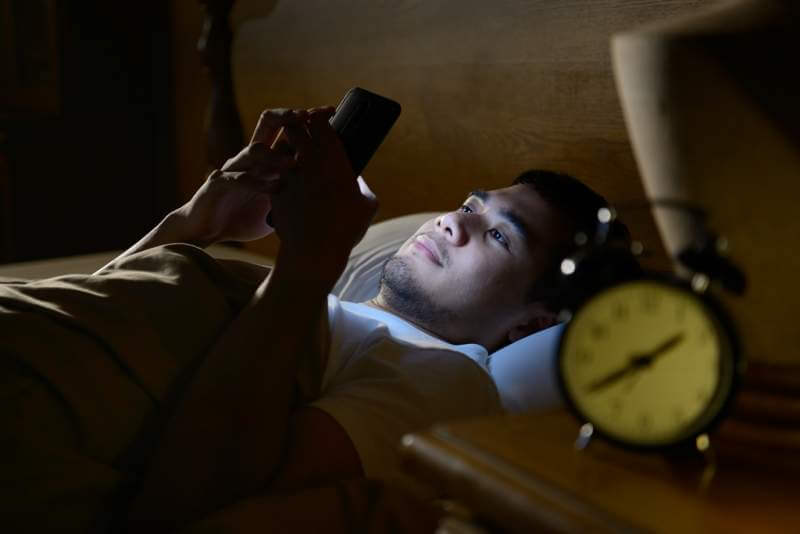 Our bodies’ sleeping habits are partly governed by biological cycles known as circadian rhythms. These rhythms are a combination of nature and nurture – they’re dictated both by instinctual triggers, and the sleeping habits that we develop over long periods of time.
Our bodies’ sleeping habits are partly governed by biological cycles known as circadian rhythms. These rhythms are a combination of nature and nurture – they’re dictated both by instinctual triggers, and the sleeping habits that we develop over long periods of time.
One of these instinctual triggers is blue light, which causes the brain to think that it’s still daytime. Blue light reduces the levels of the hormone melatonin, which is responsible for helping you get nice and sleepy. Normally, this is to keep you from getting sleepy during the day, but in recent years, we’ve had another source of blue light to drive down our melatonin levels that’s present all day – electronic devices.
Phones, tablets, computers and TVs all emit blue light that can interfere with your melatonin production and make it harder for you to fall asleep. To fix this problem, you should reduce the time you spend looking at screens as you go to bed, and totally stop an hour before you sleep. You can also download software that can add a red tint to your screen to filter out blue light, or wear blue light-filtering glasses.
2. Keep a consistent sleep schedule.
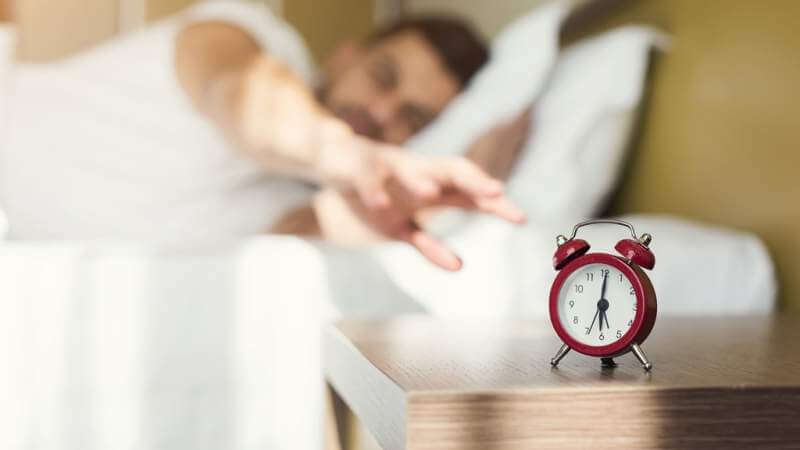 Your circadian rhythms are also affected by the hours you go to bed and wake up. An irregular sleep schedule can make it harder for you to fall asleep, or give you sleep quality issues, as your body constantly tries to adjust its circadian rhythms to match your behavior.
Your circadian rhythms are also affected by the hours you go to bed and wake up. An irregular sleep schedule can make it harder for you to fall asleep, or give you sleep quality issues, as your body constantly tries to adjust its circadian rhythms to match your behavior.
3. Avoid late-night coffee.
 It’s a no-brainer: Coffee keeps you awake.
It’s a no-brainer: Coffee keeps you awake.
But what you might not know is that even after the initial caffeine buzz from a cup of coffee wears off, the caffeine continues to sit around in your system for as long as 8 hours. You might not feel very much awake, but the residual caffeine will make it harder for you to fall asleep.
4. Try mindfulness meditation.
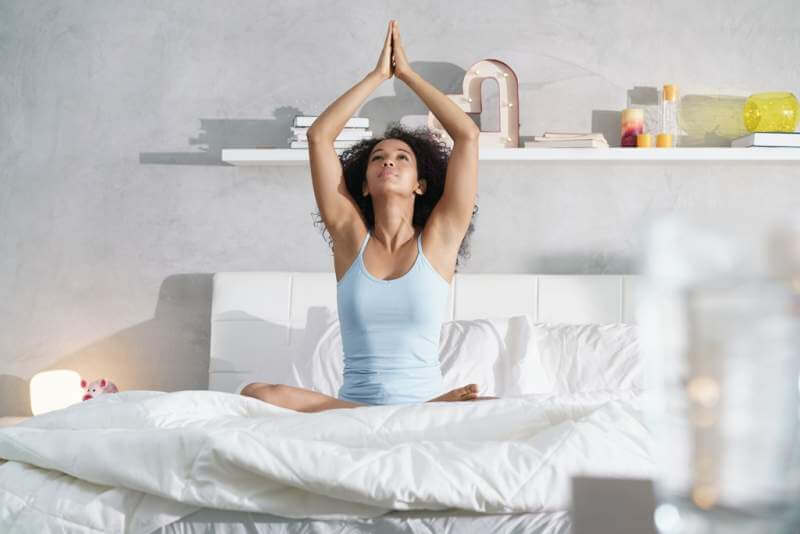 Studies show that the relaxing effect of mindfulness meditation can help improve the symptoms of insomnia and improve sleep quality. Meditation can reduce the stress and anxiety of daily life, relaxing you and stimulating the parasympathetic nervous system, restoring blood pressure and heart rate and making it easier to sleep.
Studies show that the relaxing effect of mindfulness meditation can help improve the symptoms of insomnia and improve sleep quality. Meditation can reduce the stress and anxiety of daily life, relaxing you and stimulating the parasympathetic nervous system, restoring blood pressure and heart rate and making it easier to sleep.
5. Have regular workout habits
 Exercising during the day has incredibly positive effects on your quality of sleep. It can help you go to bed faster, reduce your anxiety levels, and even allow you to sleep longer. In the long run, regular exercise may lead to better health and weight loss, which can reduce a lot of the effects of insomnia.
Exercising during the day has incredibly positive effects on your quality of sleep. It can help you go to bed faster, reduce your anxiety levels, and even allow you to sleep longer. In the long run, regular exercise may lead to better health and weight loss, which can reduce a lot of the effects of insomnia.
The one caveat is that you shouldn’t exercise too close to your intended sleeping time. There’s a certain high immediately after workouts that can make it harder to fall asleep.
6. Avoid alcohol at night.
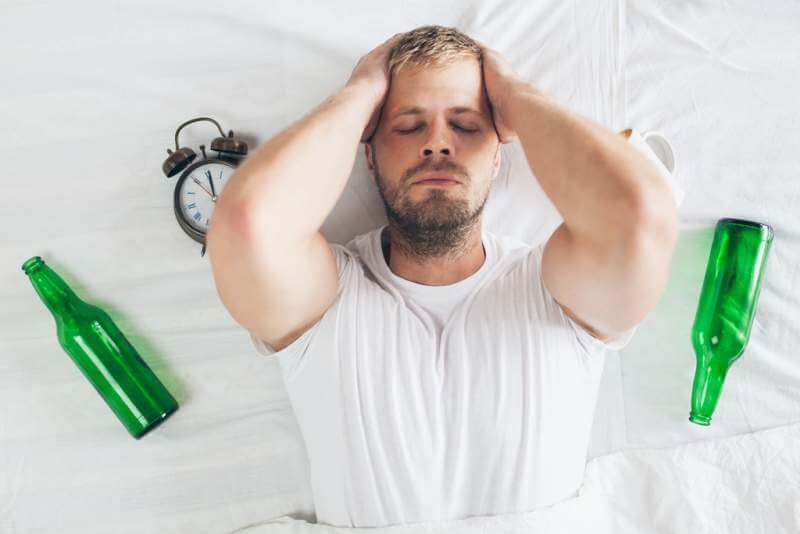 Alcohol has a variety of negative effects on your body, including interfering with melatonin synthesis, and increasing snoring and other sleep conditions. Reserve the night drinks for special occasions, and even then, try to stop drinking a couple of hours before you head to bed.
Alcohol has a variety of negative effects on your body, including interfering with melatonin synthesis, and increasing snoring and other sleep conditions. Reserve the night drinks for special occasions, and even then, try to stop drinking a couple of hours before you head to bed.
7. Try sleep supplements.
 Many people suffering from insomnia actually have disorders that reduce their production of melatonin, GABA, and other hormones and neurotransmitter chemicals. Taking supplements for these can greatly improve your sleep quality. Of course, you should consult a sleep specialist before you take any of these. It’s important to determine if there actually is a disorder in the first place!
Many people suffering from insomnia actually have disorders that reduce their production of melatonin, GABA, and other hormones and neurotransmitter chemicals. Taking supplements for these can greatly improve your sleep quality. Of course, you should consult a sleep specialist before you take any of these. It’s important to determine if there actually is a disorder in the first place!
Try acupuncture for your sleep quality needs
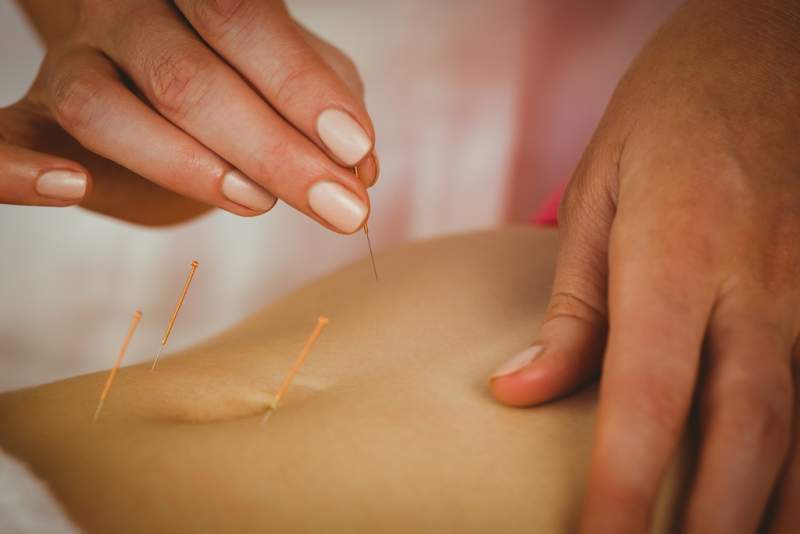 These methods can be effective for many people, but insomnia is a complicated condition that has plenty of possible root causes.
These methods can be effective for many people, but insomnia is a complicated condition that has plenty of possible root causes.
With acupuncture, you can tackle the problem at its source. Thousands of years of traditional Chinese medicine have identified energy pathways that, when disrupted, can affect everything in your life, including your sleep.
If you’re looking to try out acupuncture to improve your sleep, and want to find a medical clinic in Melbourne, head over to North Fitzroy and visit us at The Neighbourhood Clinic. We provide doctors who are well-versed in evidence-based medicine as well as traditional medicine, with experts in acupuncture, osteo massage, and other techniques that we combine with modern medicine for the best effects possible.
